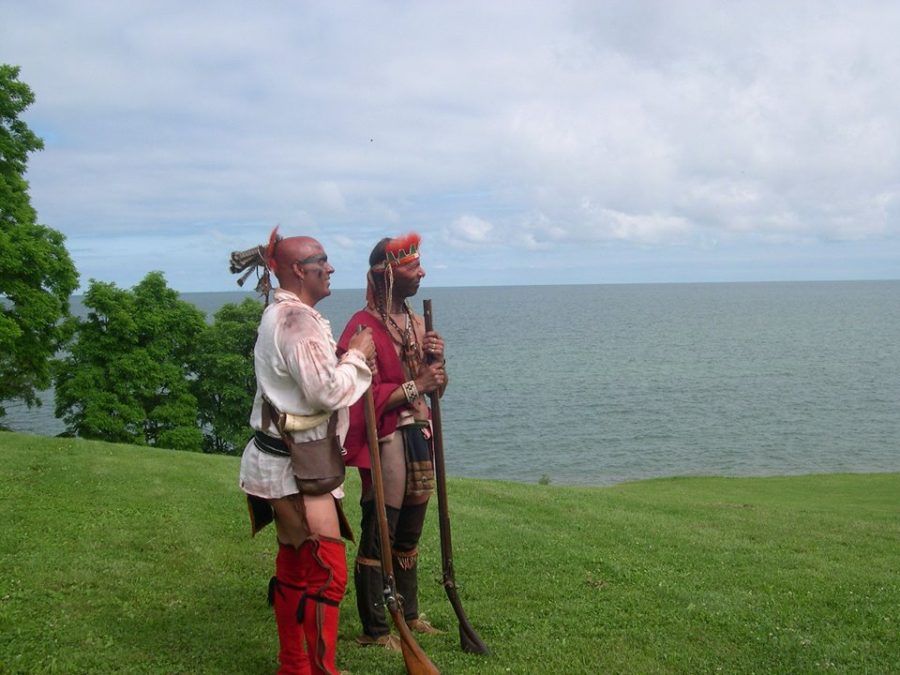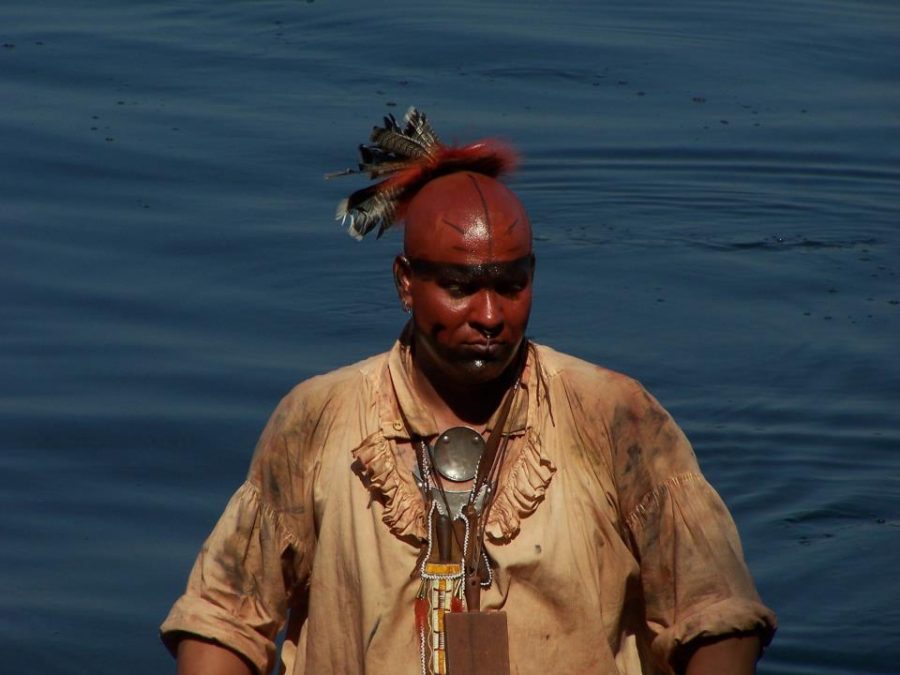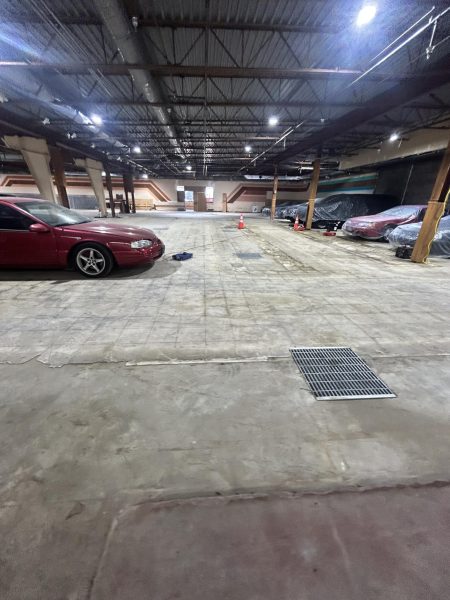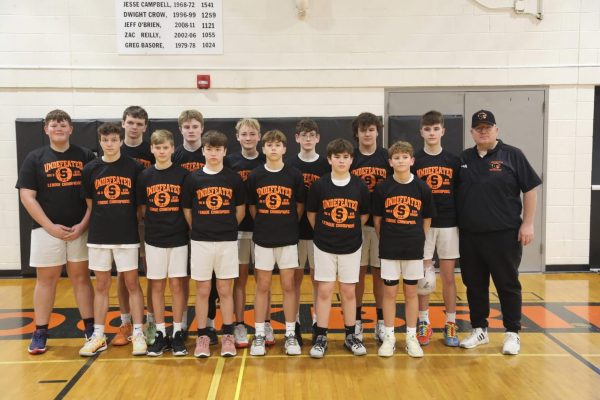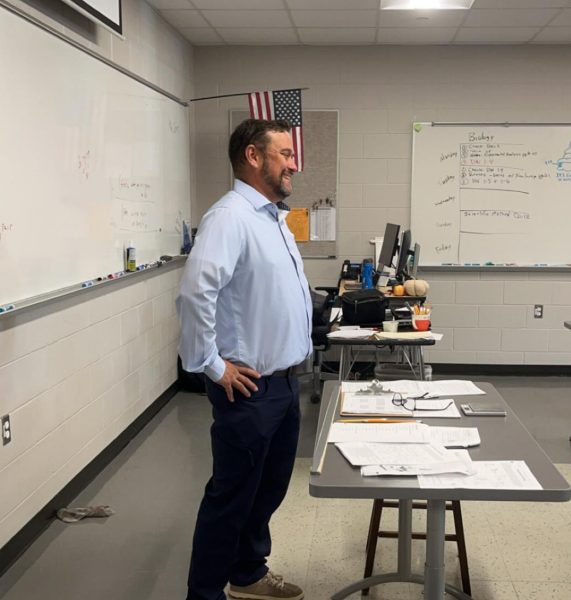Update: The pipeline and the problem
Perspective. While overlooking the view on Lake Ontario in New York, Wes Perry and a friend volunteered at Fort Niagara also in New York, to educate visitors about the history of Natives.
Update: February 9, 2017
On January 27, 2017, President Donald Trump signed executive orders and approved further advances with the Keystone XL and Dakota Access pipelines. Trump’s decision goes against Obama’s administrative decision made about the Keystone XL and Dakota Access pipeline.
Late last year, the Army Corps of Engineers denied a permit for construction of the Dakota Access pipeline, which made a victory for protesters.
The Standing Rock Sioux Tribes and other protesters still claim that the pipeline and the projects are threatening sacred sites and their water source. After Trump’s decision, protests are even stronger.
“He’s using an executive order to make this go through now, so now it’s just going to get violent which is my biggest concern,” CTE teacher Wesley Perry said. “The Indians are now saying, ‘we’re not leaving,’ and before they were just making a police action, so they weren’t really getting violent, but now with Trump saying, “We’re going to do this,” how does it not escalate to violence?”
Perry speculated about the new administration’s actions. “When you talk about impacting us just in this little spot, I do think it’s broader than that. I view it as a state, to a country, to the world and future generations.”
Because all of our water is connected Perry thinks all of our fresh water is in trouble. “That’s how I think of it. I think it’s definitely going to impact every single person in the world, That’s how serious I think it is. It will impact us here. It will be the next war in my opinion.”
November 15, 2016
“After water is gone there is no more life,” CTE teacher Wesley Perry said. “Once fresh water is gone, we are in major trouble, and we are heading that way. It’s happening everywhere, and guess where all the fresh water is for the whole world. The Great Lakes. Once it’s gone there, is no getting it back. That’s why it’s so scary for me.”
Owned by the Canadian company Enbridge which is an energy delivery company, Line five is located on the Straits of Mackinac which is in the middle of Lake Superior, Huron, Michigan, Erie and Ontario also known as the Great Lakes. It carries around 23 million gallons of crude oil each day. It is a 645 mile long petroleum pipeline, which is 30 inches in diameter until it starts to cross the Straits of Mackinac, where it then splits off into two pipes, each becoming 20 inches in diameter. The two pipes lay roughly 1,000 feet apart from one another and are at depths of 100-270 feet.
The old and aging Line five was built in 1953. The pipes have been in the bottom of the Straits of Mackinac for more than six decades. Line five carries natural gas products along with petroleum products from Superior, Wisconsin across Michigan’s Upper and Northern, parts and then down to St. Clair River, which then leads to Sarnia Ontario where the pipeline ends. The Great Lakes are 20 percent of the freshwater on earth, which means they provide drinking water.
The risk of oil spills is real. Pipelines can bust from too much pressure of fluids, location, age, and the conditions of the pipes and lack of safety inspections. The Great Lakes are 20 percent of the freshwater on earth, which means they provide drinking water. If there was to be an oil spill in the Great Lakes, the spill would pollute the freshwater sources.
Relating to this topic of pipelines and freshwater, as of right now in North Dakota, Native Americans are protesting and being arrested for trying to save their reservations and water source. This is happening because the Dakota Access Pipeline wants to run a 1,172-mile pipeline through North Dakota, South Dakota and Iowa, which eventually would meet with an existing pipeline in Patoka.
About a month ago the federal government asked the pipeline to hold off on the construction within 20 miles of the reservation. On October 10, the Standing Rock Sioux Tribe and protesters request of holding off construction was denied.
The Standing Rock Sioux Tribe‘s claims that the pipeline and project are threatening sacred sites, such as burial grounds and their water source.
“Nobody will talk about this because the oil company shuts everybody up,” Perry said. “It’s crazy and totally unlawful, and it’s nothing but money. That’s how I vote for the environment, our land, and our water rights. It’s such a big thing about our water, it’s happening all over the place but people just don’t care, but people will start caring when it’s their water that is gone. Natives are the only ones fighting for our earth on a daily basis.”
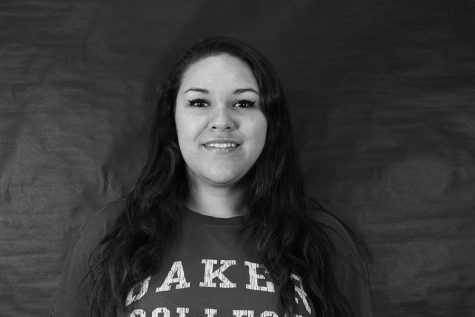
I was recommended to Uncaged by my freshman English teacher but had to wait until my sophomore year to join, so I had time to think about it. When scheduling...

I received an invitation to join the newspaper in my ninth grade year around scheduling time. This opportunity led to an experience I never even thought...



